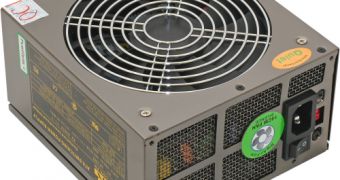The power supply unit (PSU for short) is one item that most of the new computer users overlook when shopping for a new system. A good power supply will increase the performance, reliability and stability of a computer system. Often its importance is under-evaluated and under-appreciated, buyers looking only for good processors, motherboards and so on. This fact can cause dire consequences as most computer parts today are very picky about voltages and power fluctuations. This article focuses on what a beginner should look for. It is not designed to be an all-in-one guide, just a starting point. There are a few steps in determining the right power supply for your particular computer. As we cycle through them, you will understand more. So, let us begin with the first item on the list.
Determine the amount of power you need. There are a number of web pages and free software programs that, based on a particular hardware solution, will help you calculate the total amount of power needed by your computer to work well. Let's say that after using one of these calculators you end up with 450W. That should be viewed as the minimum power needed. Do not hurry and buy the cheapest PSU that can provide that power. As a power supply ages it loses some of its power output. Maybe you will want to upgrade your hardware base sometime in the future. So buying a more powerful PSU makes sense. On the other side, a giant PSU, one that can deliver two or three times the power you really need is just wasted money as it will never be used at its peak capacity.
Based on your hardware base, look at what connectors you need. Most of the hardware today requires what could be called "exotic" connectors. See if you need SATA or PCI-Ex power connectors and buy a PSU accordingly, as power adapters exist but are sometimes a nuisance. Look not for the cheapest PSU on the market, but for the one with a high efficiency rating. Anything above 80% is good and it means that from let's say 100W drawn from the power grid, the PSU can convert and use 80, 20W being lost as heat.
Compare the amperage at each voltage level, as written on a sticker on the side of the PSU. A 500W PSU may sound adequate, but if its 12V amperage is in the low 20s or less, it may not be properly balanced to supply adequate 12V amperage. Look past bells and whistles, such as lighted fans, adjustable fan speeds, sleeved cables, and painted or polished enclosures. Although these are certainly desirable features, they do not make up for performance or reliability shortcomings.

 14 DAY TRIAL //
14 DAY TRIAL //